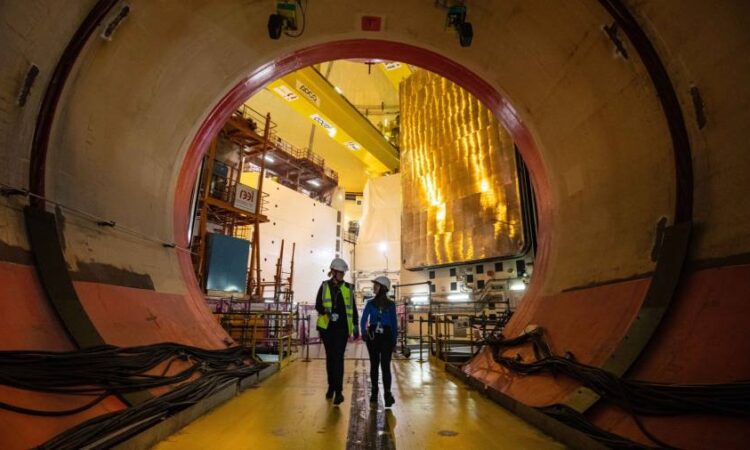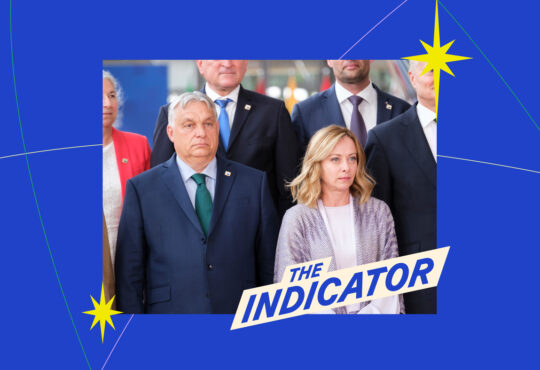
France is leading a coalition of countries holding up agreement on EU-wide targets for renewable energy, as it makes a fresh drive for better treatment of its nuclear industry.
The move comes amid a broader pushback against the bloc’s climate agenda as the realities of what is required for the green transition become increasingly apparent.
The EU’s 27 member states were due to agree an overall target of 42.5 per cent of renewable power in the bloc’s energy mix by 2030 on Wednesday.
But France, which relies on nuclear power for the majority of its electricity, signalled that it would not support the text, citing concerns that “low-carbon” hydrogen generated with electricity from atomic power plants would not be counted as part of the targets.
“It must be possible for nuclear-derived electricity to coexist with renewable electricity without discrimination,” a French diplomat said.
The vote, which was pulled from the agenda of an ambassadors’ meeting at 11.30pm on Tuesday night, would have paved the way for the targets to become EU law following their approval in the European parliament.
Paris’s late decision not to support the targets follows a similar effort by Germany to secure exemptions for its car industry from a 2035 ban on combustion engines that forms another central part of the EU’s climate law.
That issue was resolved after several weeks of negotiations with the commission, which eventually ended in a carve-out for engines that ran on carbon neutral “e-fuels”.
Other member states said that having the bloc’s two largest countries push for last-minute changes to green legislation set a dangerous precedent for the EU’s policymaking process and could affect its path to achieving an overall target of reducing greenhouse gas emissions by 55 per cent by 2030 compared with 1990 levels.
“The bigger problem is that first Germany does this and then France pulls the same [move]. They are meant to be leading on these issues,” said one EU diplomat.
Another said that both countries’ attempts to renegotiate policies could have a negative effect on overall emissions targets.
The EU commission said it remained committed to a “rapid rollout” of renewable energy as a critical element of the bloc’s goal to reach zero greenhouse gas emissions by 2050 and to reduce its dependence on Russian fuels. “The new rules need to be adopted and implemented as swiftly as possible.”
French officials have in the past rejected criticism that they are promoting the interests of its nuclear industry by arguing that EU rules allow countries to choose their own energy sources. Its fleet of nuclear power plants already give it lower greenhouse gas emissions per unit of GDP than many of its neighbours, although it has missed EU targets for building renewables.
Six pro-nuclear countries, including the Czech Republic, Bulgaria and Hungary, followed Paris’s lead on Wednesday and withheld support for the directive. Meanwhile, anti-nuclear governments, including in Germany and Austria, have been strongly opposed to recognising nuclear power as a clean fuel.
Earlier this week, Paris convened a meeting of ministers from 14 countries with nuclear energy capacity along with the EU’s energy commissioner, Kadri Simson.
In a statement following the meeting, the ministers said they aimed to strengthen “European co-operation in the field of nuclear energy as an important component of Europe’s energy and climate ambition”.
Simson said that Brussels “remains neutral with regard to member states’ energy mix choices”.
No date has been set for a new vote on the renewable energy proposal as talks are “ongoing”, according to an official involved in the discussions.
Rules to increase uptake of sustainable aviation fuels were also pulled from Wednesday’s agenda. Airlines for Europe said that the “current impasse between France and Germany over nuclear energy’s role” was jeopardising the sustainable fuels legislation.
“Stable policies are the bedrock of consensus-building needed for the swift decarbonisation of Europe’s economy.”
Additional reporting by Leila Abboud in Paris
Climate Capital

Where climate change meets business, markets and politics. Explore the FT’s coverage here.
Are you curious about the FT’s environmental sustainability commitments? Find out more about our science-based targets here





